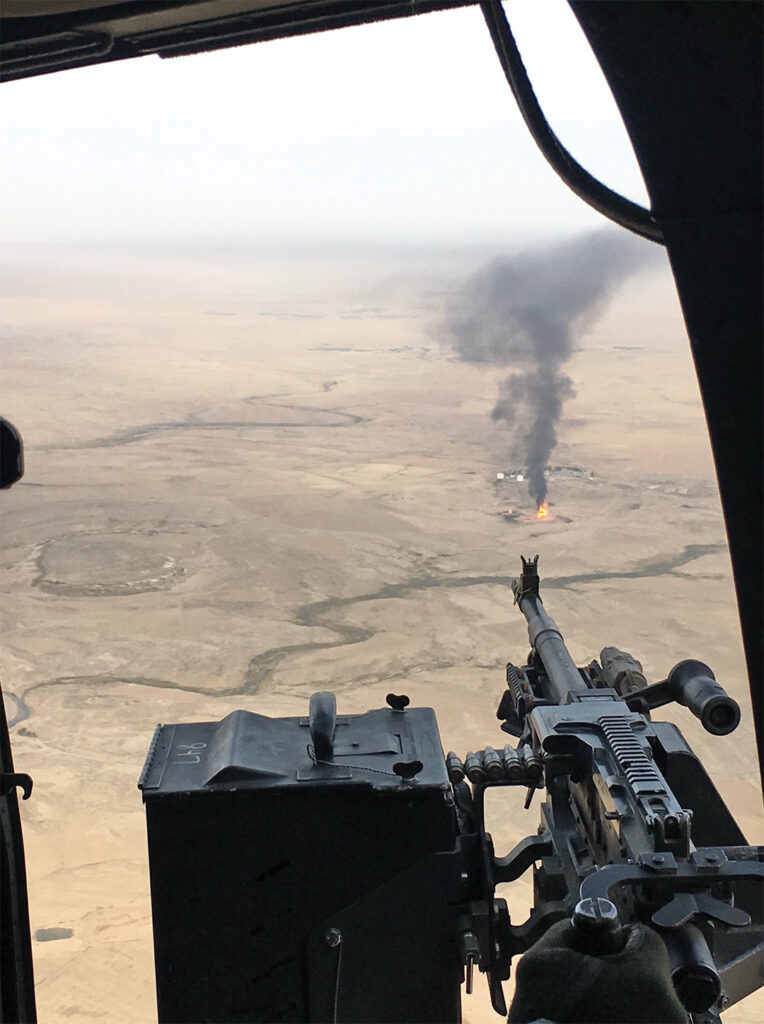The terrorist group can no longer occupy provinces or conduct large-scale operations
IRAQI MAJ. GEN. TAHSIN IBRAHIM AL-KHAFAJI, JOINT OPERATIONS COMMAND SPOKESMAN
Many wonder whether Daesh has the capability once again to conduct large-scale attacks or control territory and whether it can be a terrorist force capable of exerting pressure on regional and international security.
The policy of moral confusion, dissension and mass killing as practiced by terrorist organizations affiliated with Daesh neither bears fruit nor yields results needed to wield lasting influence in places such as Iraq.
Several reasons explain why Daesh cannot reemerge as strong as it once was.
First, it has lost its hold over Iraqi populations from which it hoped to recruit, particularly in Sunni-majority cities. It no longer has any influence or communal presence among youth, elders, dignitaries, power brokers and even financiers. Those who previously supported the group have distanced themselves from it.
A second reason for Daesh’s waning influence was the organization’s mismanagement in areas it once occupied. Its inability to improve the quality of life in those cities increasingly led to its repudiation.
Third, Daesh encouraged anti-social behavior through its espousal of sexual jihad; forcing children, called Cubs of the Caliphate, to carry out killings; and buying and selling women in violation of human rights and morality.
Consequently, after the liberation of Iraqi cities, there was a rapid collapse of support for Daesh in areas that were once considered a breeding ground for the group.
At a time when cities such as Haditha, Amerli and others were bravely resisting and fighting these gangs, these cities posed a significant challenge to Daesh. Despite the policy of fear, intimidation and panic exercised against the civilian population and the brutal massacres committed by Daesh, residents of these cities only increased their resilience and defiance.
These facts suggest Daesh is no longer capable of dominating sections of Iraq as before. Instead, cells from the organization’s remnants try to do anything they can to harm the security of the country, supported by money-making gangs that perpetuate the group’s survival with smuggled food and arms.
Daesh maintains influence for several reasons, such as a deep-rooted ideology planted during its more than three-year existence, as well as the cells that await an opportunity to carry out terrorist attacks. Its camps remain centers for the cultivation and dissemination of extremist ideas.
Iraqi security forces are obliged to address these problems. They have succeeded in breaking many of the terrorist organization’s codes, while launching intelligence operations scientifically with the help of the international coalition, which still contributes much to the fight against Daesh.
If terrorists believe they can reconstitute Daesh in its old form, they are mistaken. Everything is different now, despite the challenges the country faces and the continued efforts of Iraqi security forces.
Long live my homeland, the land of many civilizations, and long live my people, with their illustrious history. Warm greetings and appreciation to all those who have contributed to the fight against Daesh.

